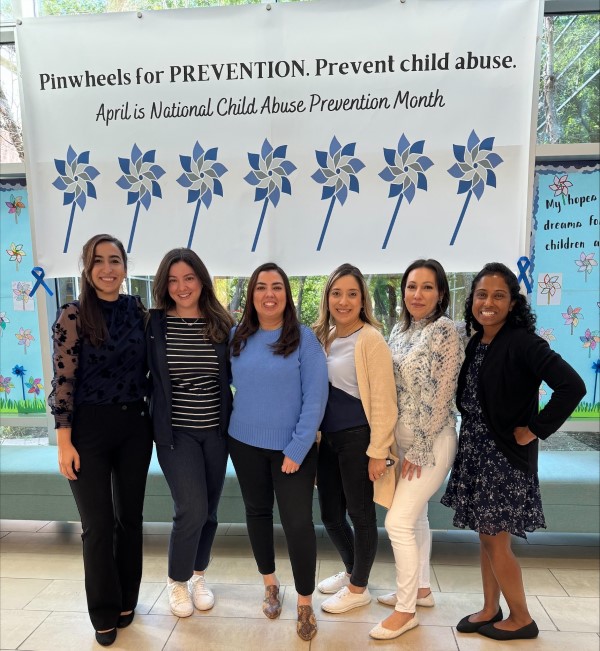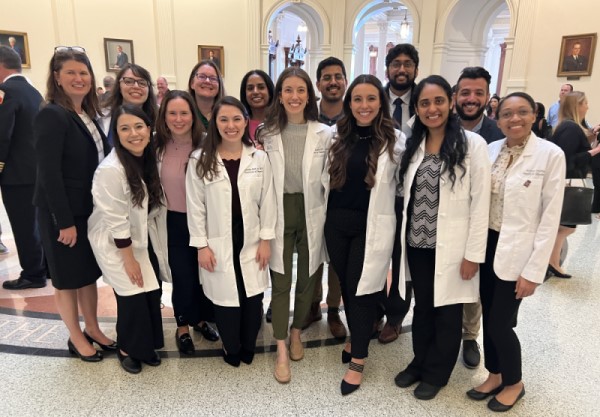Academic & Research Activities
Education
 CAP fellows will have access to a wide variety of educational conferences provided by the fellowship program, Department of Pediatrics, and UTHealth Houston. These convenings feature formalized settings of various educational venues — such as didactic, self-reflection, tutorial, formal courses, workshops, simulation and more — to enrich the clinical experience and further develop each fellow’s skills in the six core competencies and scholarly training requirements.
CAP fellows will have access to a wide variety of educational conferences provided by the fellowship program, Department of Pediatrics, and UTHealth Houston. These convenings feature formalized settings of various educational venues — such as didactic, self-reflection, tutorial, formal courses, workshops, simulation and more — to enrich the clinical experience and further develop each fellow’s skills in the six core competencies and scholarly training requirements.
Additionally, fellows attend select national conferences that provide background, training and skills to succeed in the field of child maltreatment.
These conferences include:
- San Diego International Conference on Child and Family Maltreatment
- Ray E. Helfer Society Annual Meeting
- Pediatric Academic Societies (PAS) Meeting
Educational Conferences and Courses
- CAP Fellows Lecture Series
- Helfer ECHO Lecture Series
- Multidisciplinary Team Meetings
- Harris County Child Fatality Review Team Meetings
- Morbidity and Mortality Conference (M&M)
- Case Reviews
- Radiology Rounds
- Mock Trial Sessions
- Center of Clinical Research Courses
- Departmental Fellows Core Curriculum
- Journal Club, Literature Appraisal
Research
The goal of this rotation is to allow each fellow training and experience to develop competency in research principles of basic science and clinical research over the three-year program. These scholarly experiences enable each fellow to develop as a physician scientist; expose fellows to concepts of hypothesis-driven research; and encourage active participation in the profession’s national societies. All fellows are required to complete the assigned components of the Clinical Research Education courses provided through the The Institute for Clinical Research & Learning Health Care.
Research Rotation
The UTHealth Houston CAP Fellowship provides a minimum of 12 months of dedicated research rotations throughout the three-year fellowship. The fellow is expected to identify, participate and complete a scholarly activity as described by the American Board of Pediatrics (ABP). The ABP has expanded the options for projects but did not dilute the rigor expected. Scholarly activity can include, but is not limited to, clinical research, basic science research, meta-analysis, Cochrane review, quality-improvement project, educational curriculum design, and Master’s level program with a thesis.
Rotations are provided in monthly time periods with increasing numbers of months as the fellow advances in training. Oversight of all scholarly activity is provided by the Divisional Scholarship Oversight Committee (SOC).
Fellowship Symposium:
The Annual Pediatric Fellows Research Symposium is hosted by the Department of Pediatrics at McGovern Medical School each May. This event showcases the scholarly contributions of subspecialty fellows to pediatric research. It is a key part of the Department’s mission to provide outstanding educational opportunities and promote innovative research to improve the health of children.
- 3rd Year Fellows: Have the opportunity to present their research at the symposium.
- 2nd Year Fellows: May submit abstracts for presentation at the symposium.
TPS Member Advocacy Day:

Residents & Fellows visit the Capitol in Austin for Advocacy Day.
As part of their training, fellows have the opportunity to participate in the Texas Pediatric Society’s (TPS) Resident, Fellow & Medical Student Advocacy Day, held every two years. This event offers a full day of interactive activities designed to equip fellows with the skills to effectively advocate for children’s health. The day includes sessions on legislative processes, advocacy strategies, and hands-on experience through meetings with lawmakers to discuss key pediatric policies.
The next TPS Advocacy Day is on February 12, 2025, in Austin, TX. This is a valuable opportunity for fellows to deepen their understanding of the legislative process and engage in advocacy to improve the health and well-being of children in Texas.